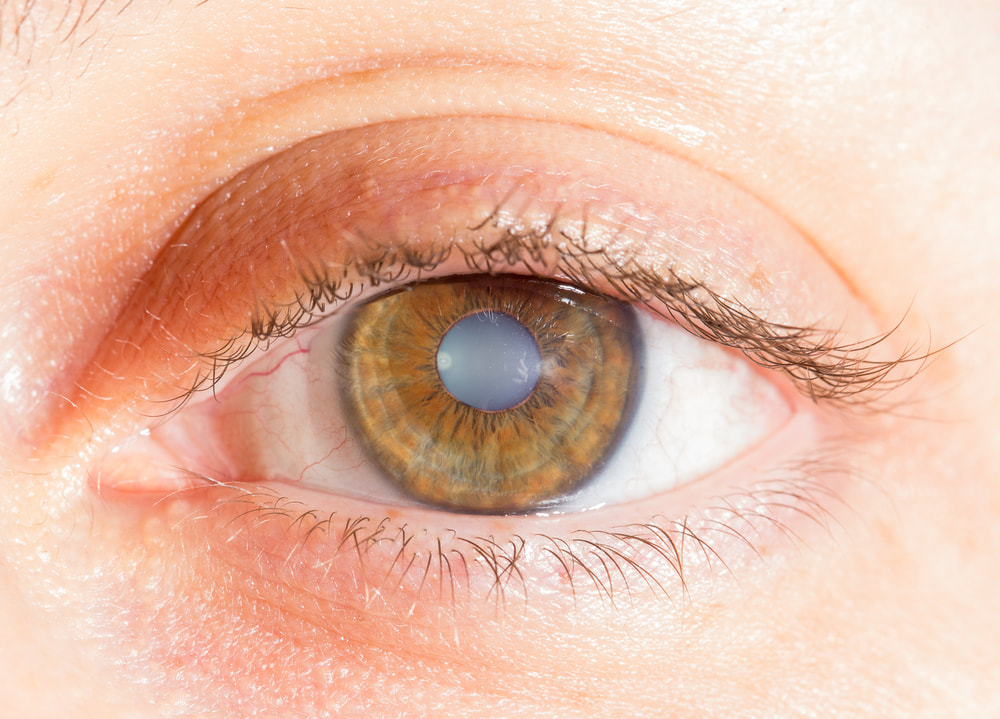UV ray exposure is also thought to increase a person’s risk of developing cataracts. The good news is cataracts can easily be treated with surgery. How is Cataract Surgery Performed?There are different surgical procedures used to treat cataracts including laser-assisted and traditional. Both types involve removing the cloudy lens and replacing it with an artificial lens. Regardless of the type of procedure, cataract surgery usually does not require an overnight stay in the hospital. During traditional cataract surgery, the procedure is done by making a cut in the cornea and inserting an instrument behind the pupil to see the lens. A small opening is created in the lens. The cloudy portion of the lens is broken up using sound waves and removed. The artificial lens is placed in the same position as the natural lens. There are also newer techniques used to perform cataract surgery including the use of lasers. Laser-assisted cataract surgery still involves removing the cloudy lens and replacing it with an artificial lens. This procedure also involves using ultrasound during surgery. Laser-assisted cataract surgery may be an option for the patient and may actually be advantageous for some patients. It’s best to discuss with your surgeon which option is best for your situation. Typically, cataract surgery is relatively quick and the whole experience takes about an hour. (The actual surgery takes about 10 minutes.) Before the procedure, you will be administered pre-operative medication and have your eyes dilated. Numbing medication will be given, so you won’t feel anything during the procedure. Some people may also want a sedative to help them relax. After the surgery, you will be evaluated briefly to make sure your eye pressure remains normal and given post-operative instructions before you go home. Preparing for Cataract SurgeryThere is not much you have to do to prepare for cataract surgery. Your doctor will likely perform a couple of tests a few weeks before the procedure. For example, he might measure the size and shape of the eye along with the curve of the cornea. The measurements help the doctor determine the best artificial lens. If you are taking medications that may increase the risk of bleeding, your doctor may ask you to stop temporarily. Antibiotic eye drops may be prescribed for you to use for a few days before surgery to decrease the risk of infection. You will also be told not to eat or drink anything 12 hours before the procedure. This is to reduce the risk of vomiting and aspiration. What is Recovery from Cataract Surgery Like?Your aftercare instructions may include avoiding bending from the waist or lifting heavy objects for a certain amount of time. Eye drops may be prescribed to decrease the chances of infection and promote healing. You may need to wear glasses to protect your eyes as they heal. It typically takes about eight weeks for complete healing.
Mild discomfort and itching may occur after the numbing medication wears off. Fluid discharge from the eyes may develop. It’s common to be sensitive to light for a while during the healing process. Pain usually only lasts a few days. Complications from cataract surgery are uncommon but may include:
While these complications are rare, contact your doctor immediately if you develop any of the above symptoms. Usually, a follow-up appointment is scheduled a few days after the procedure to see how well you are healing. Cataract surgery is successful for the majority of people that have the procedure. You should start to notice improved vision in a few days. If you have any questions about cataract surgery, or if you would like to schedule an appointment with our eye doctors, please give us a call at 508-746-8600. Comments are closed.
|
EYE HEALTH BLOGCategories
All
Archives
July 2024
|
|
Kadrmas Eye Care New England
55 Commerce Way, Plymouth, MA 02360
14 Tobey Road, Wareham, MA 02571 133 Falmouth Road (Rt 28), Mashpee, MA 02649 |
Phone Number:
1-508-746-8600 Hours: Monday through Friday — 8 AM – 4:30 PM |


 RSS Feed
RSS Feed
